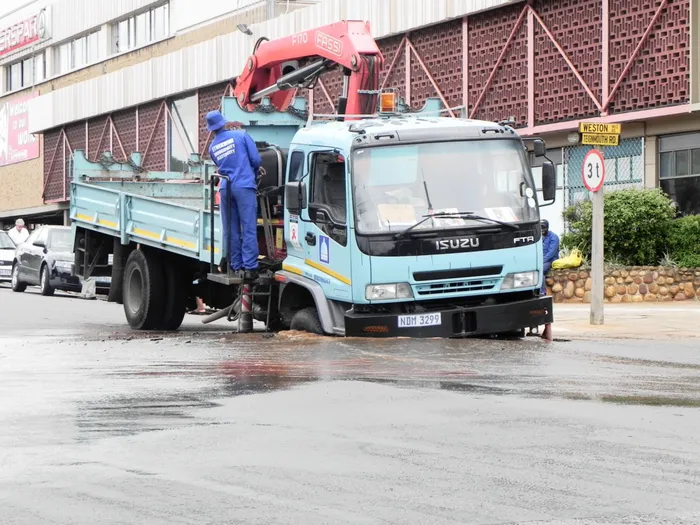Pothole drivers play dodgem

Motorists in Durban have been forced to play dodgem cars on the province’s roads which have become pockmarked with potholes opened up or made worse by persistent rain in recent months.
While city officials have stepped up efforts to repair the potholes, KZN transport department head Chris Hlabisa said the provincial government had a limited budget for road maintenance, with much money being earmarked to build new roads.
Visvin Reddy, chairman of the infrastructure committee in the eThekwini council, said the city could not deal with all the potholes at once.
“We cannot fix all the potholes in two days. We are, however, trying our best to fix the problem.”
He said the city had received a flood of complaints about potholes, especially during the holidays when the district had experienced heavy rainfalls. The city had a unit dedicated to potholes which was dealing with the problem daily, he said.
The city’s head of engineering, Adrian Peters, said Durban had one of the highest quality road networks in the country. Some potholes had been caused by frequent digging in the past two years for the installation of water, sanitation and telephone network infrastructure.
Peters said the delay in filling the potholes had been partly due to the closure of asphalt suppliers during the holidays. The city had been forced to use alternative mixtures to repair roads, which were not as effective.
Clairwood Ratepayers’ Association chairman Rishi Singh said Persadh, Archary, Houghton and Ganesh roads were the worst affected by potholes in the area.
“We have complained to the municipality about the condition of our roads. The pothole problem is an ongoing problem in our area,” he said.
Isipingo Ratepayers’ Association chairman Dharmanand Nowbuth said the main problem in that area was the M35 road, which was used by public transport vehicles.
“The main road has huge potholes, which are sometimes unavoidable. This road is not well maintained and it is becoming difficult for motorists to negotiate,” he said.
Hillcrest Ratepayers’ Association chairwoman Lilian Develing said roads in the area were badly patched.
“As soon as it rains, the road surface becomes damaged again. This is because the road was not properly patched at the outset,” she said.
Peter Tooley, an engineer at ILISO Consultants, said the city should invest more money in building quality roads to avoid high maintenance costs. He said the municipality had done an “outstanding” job of ensuring that the road network was of a high standard.
Hlabisa said some roads managed by the province had exceeded their lifespans.
He said the P48 between Melmoth and Babanango was built in the 1950s and was still in use today. “This is an example of a road that has exceeded its lifespan. To repair a kilometre of this road can cost the department R6 million to R7 million.”
He said the province had a limited budget and was trying to strike a balance between ensuring that older roads were preserved while new infrastructure was also being developed in previously inaccessible areas.
Tyre businesses in the province reported slight increases in sales to motorists whose tyres had been damaged by potholes.
Many customers wanted documentation to submit claims for their expenses to their insurance companies or to municipalities.